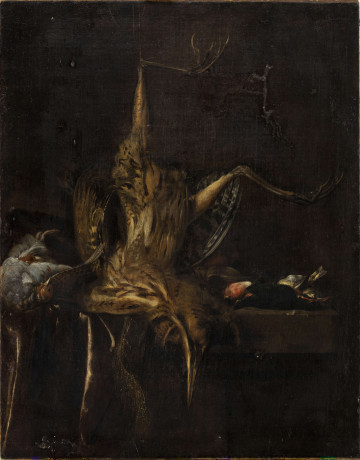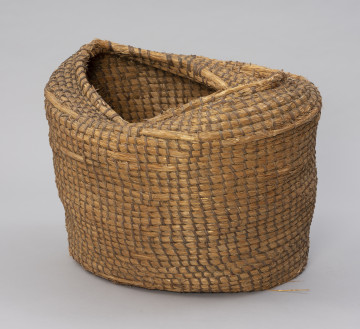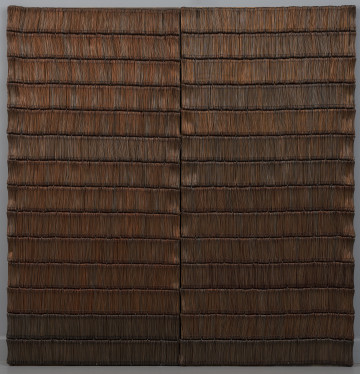
Still life – Birds
1670
National Museum in Lublin
Part of the collection: European painting
The painting Martwa natura z zającem [Still Life with a Hare] is an example of a painting genre, which in the 17th-century Netherlands was defined by the term stil-leven and was supposed to mean 'silent and motionless life'. As the popularity of the motif grew in Western European countries, further terms were coined, including the German stilleben and the English still life. The Polish term 'still life' is derived from the French term nature morte.
From the first half of the 17th century in the Netherlands there was a clear interest in illusionist painting, exemplified by compositions of still lives frozen in time. This kind of treatment was called trompe – l'oeil, because it was based on a perfect use of chiaroscuro and an elaborate elaboration of objects. In representations of this type, the most important thing for the artist was the exact reproduction of reality, creating an illusion which was to stimulate the viewer's senses.
However, 17th-century still life contained not only intricately reflected beauty and richness of the surrounding world, which was supposed to bring pleasure to the senses, but also the painful truth about transience and fragility of our lives. Thus, every still life, in a more or less literal way, manifests to the viewer the guiding idea of the Book of Kohelet: Vanitas vanitatum et omnia vanitas (Vanity Above Vanities and All Vanity), which aims to make us realise that mortal life is only a short, passing moment.
The painting with the killed but not yet dressed hare, with a bunch of asparagus and scattered mushrooms lying on a monochromatic background in the colour of an uncovered wooden table, therefore has a unique atmosphere. It is achieved by the brown light filling the whole composition, which intensifies the message contained in the painting that the spectre of death always accompanies an intoxicating life.
Barbara Czajkowska
Author / creator
Dimensions
cały obiekt: height: 62 cm, width: 75 cm
Object type
painting
Technique
oil technique
Material
canvas, oil-based paint
Creation time / dating
Creation / finding place
Owner
The National Museum in Lublin
Identification number
Location / status

1670
National Museum in Lublin

1900 — 1950
National Museum in Szczecin

1996
National Museum in Szczecin
DISCOVER this TOPIC
Museum of King Jan III's Palace at Wilanów
DISCOVER this PATH
Educational path